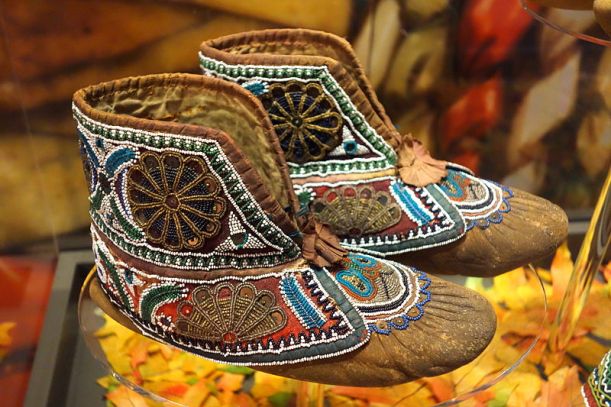
If, like me, you have been lucky enough to discover you have First Nations’ ancestry you may soon after feel somewhat unlucky when you find that the records we rely on as Genealogists quickly dry up! As we start to wall up that family line one brick at a time we should step back and rethink. Is there no way to combat this scarcity of documentation? How do we as Genealogists and Family Historians handle cultures which thrived on oral tradition rather than written records?
As an archaeologist and history researcher I can assure you that the scarcity of records proving the life events of your individual ancestors does not have to represent a research wall but rather a unique research opportunity. Once the usual records dry up remove that first brick by discovering what other post-contact documents may exist.
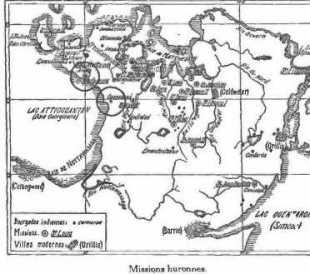 My 8th Great Grandmother was Huron or Wendat (Wyandot). The Wendat people no longer exist as a nation. They were drastically reduced as a result of European introduced disease, and Iroquoian attacks. Those who survived were often assimilated into the other Iroquoian nations. I encountered my 8th Great Grandmother through the Roman Catholic Church parish records (Drouin collection). She had married my French Canadian 8th Great Grandfather and was described as a “Huron”. Her parents were named as was her birth place in a Huron mission in the “land of the Huron” now part of Ontario. While these parish records would seemingly represent the end of the research road they were not.
My 8th Great Grandmother was Huron or Wendat (Wyandot). The Wendat people no longer exist as a nation. They were drastically reduced as a result of European introduced disease, and Iroquoian attacks. Those who survived were often assimilated into the other Iroquoian nations. I encountered my 8th Great Grandmother through the Roman Catholic Church parish records (Drouin collection). She had married my French Canadian 8th Great Grandfather and was described as a “Huron”. Her parents were named as was her birth place in a Huron mission in the “land of the Huron” now part of Ontario. While these parish records would seemingly represent the end of the research road they were not.
The Huron missions were the purview of the Jesuits who were prolific writers, journaling and writing letters detailing their experiences. The Jesuit Relations and Allied Documents provide an amazing source of documentation and social history. Though written from a European perspective a picture of life can be painted. An interesting aside to always consider is regarding the perspective and worldview of documents created during colonization and their pitfalls. Dr. Sarah Nickel has touched on this problem in an interesting presentation entitled, Revealing Indigenous Histories Through Oral Interviews.
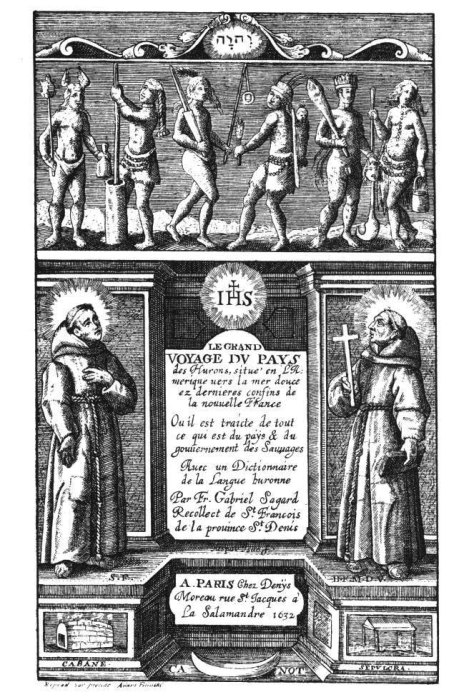 Can one turn to Indigenous oral history interviews to discover the social histories of our ancestors? It is possible, though the value of these oral histories may fade the further you venture into the past. If ones researching First Nations ancestors in more recent generations the options are more varied and available.
Can one turn to Indigenous oral history interviews to discover the social histories of our ancestors? It is possible, though the value of these oral histories may fade the further you venture into the past. If ones researching First Nations ancestors in more recent generations the options are more varied and available.
In the case of my Huron ancestors few records exist beyond those involving my 8th Great Grandmother. While she can be found in parish and notary records her parents were only names appearing on her marriage record. It was through the Jesuit Relations that I found one mention of her father. A stroke of luck! To fill in any further gaps I was reliant upon sources of social history to understand the Huron world of the 1600s and before, the world of my ancestors–context!
History books, ethnographies, dictionaries/linguistic studies, archaeological reports are all examples of pre and post contact sources of helpful contextual information. Having worked on a pre-contact Huron archaeological site in Ontario I was already a step ahead in my understanding but here is a list of reading I discovered:
“From Mother to Son: The Selected Letters of Marie de l’Incarnation to Claude Martin” or “Word from New France: The Selected Letters of Marie de L’Incarnation to Claude Martin”Words of the Huron by John Steckley
The Children of Aataentsic by Bruce Trigger
An Ethnography of the Huron Indians, 1615-1649 by Elisabeth Tooker
The Death and Afterlife of the North American Martyrs by Emma Anderson
Huronia by Conrad Heidenreich
Huron Wendat: The Heritage of the Circle by Georges Sioui
Many of you who were previously unaware of your First Nations heritage will likely have Metis ancestors. Compilations particularly of French-Canadian and First Nations marriages exist and can also prove useful. If they have been sourced, all the better!
- First Metis Families of Quebec Series by Gail Morin
Metis documentation is perhaps easier to find, most specifically in the prairies. Metis are of mixed Aboriginal and European heritage. The government wishing to expand in the west used scrip to extinguish the aboriginal land title of Metis peoples. Métis Scrip Records can be found in the Library and Archives of Canada collection. Other excellent prairie Metis record databases and collections can be found at Glenbow Library and Archives, The Hudson’s Bay Company Archives, and Provincial Archives of Saskatchewan.
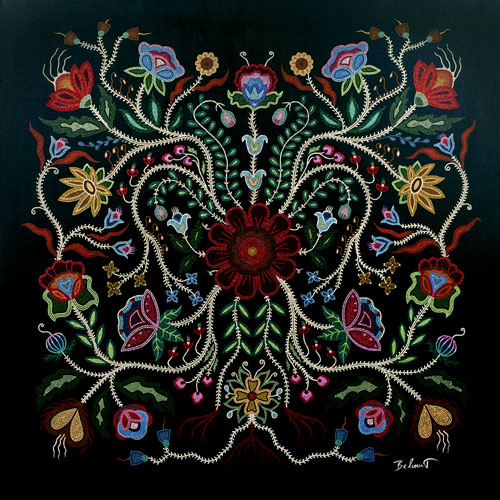 We must remember that First Nations is meant to indicate a multitude of indigenous nations. As a first step attempt to determine which nation to which your ancestor belongs. It is this knowledge which will provide a starting point when determining available sources. What region of Canada might your ancestor have lived in? In what treaty area? Consider the time frame. Then begin! Research the particular First Nation through history books and ethnographies to determine what was happening during the period of interest and perhaps what documentation might be relevant.
We must remember that First Nations is meant to indicate a multitude of indigenous nations. As a first step attempt to determine which nation to which your ancestor belongs. It is this knowledge which will provide a starting point when determining available sources. What region of Canada might your ancestor have lived in? In what treaty area? Consider the time frame. Then begin! Research the particular First Nation through history books and ethnographies to determine what was happening during the period of interest and perhaps what documentation might be relevant.
Library and Archives Canada has several collections which could be useful and provides a Guide to Researching your Aboriginal Genealogy at LAC. Of particular interest to those researching more recent generations might be the registers which start around 1951, Treaty Annuity Pay Lists 1850-1982, and Residential school records.
Other wonderful sites which may provide you with valuable resources:
- Our Legacy
- Canadiana (which is unfortunately a subscription site but one can browse the collection titles before subscribing)
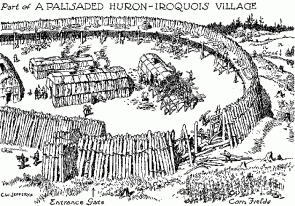 Look to archaeology reports to gain a greater understanding of the life of your ancestors pre-contact. Archaeological societies exist for most provinces and publish regular journals. Here are two examples of archaeological reports from a Huron site I once worked on:
Look to archaeology reports to gain a greater understanding of the life of your ancestors pre-contact. Archaeological societies exist for most provinces and publish regular journals. Here are two examples of archaeological reports from a Huron site I once worked on:
- The Ball Site: A Preliminary Statement. Ontario Archaeology 29:53-63 by Dean Knight
- Ball Site Burial Patterns by Dean Knight and Jerry Melbye
Finally, think outside the box by reading well researched fiction for a broad feel of the period and the culture. Keep in mind it is fiction! A wonderful example would be The Orenda by Joseph Boyden. Explore historic sites, cultural centres, and museums dedicated to First Nations history.
Remember, the end of the “usual” records we as Genealogists tend to rely on does not necessarily signal a brick wall. If a wall exists perhaps we can, at the very least, build a window through which we can view the possibilities of the more distant past!
